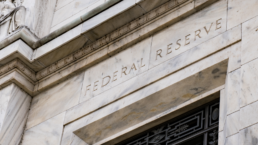Federal Reserve chairman Jerome Powell plans to address sky-high inflation by hiking interest rates — acknowledging that doing so will suppress wages and worker power. It’s a response that will force workers to bear the brunt of the inflation crisis.
By Julia Rock, Jacobin
New inflation data released Friday offered dismal news: historic price increases aren’t showing any signs of abating, and in fact may be accelerating.
What can be done? Federal Reserve chairman Jerome Powell has an idea: throw cold water on the hot labor market — perhaps the one bright spot in the current economy.

In fact, Powell recently screamed the quiet part out loud, making clear the largest central bank in the world is in fact an adversary to workers, when he declared that his goal is to “get wages down.”
At a May 4 press conference in which he announced a .5 percent interest rate hike, the largest since the year 2000, Powell said he thought higher interest rates would limit business’ hiring demand and lead to suppressed wages. As he put it, by reducing hiring demand, “that would give us a chance to get inflation down, get wages down, and then get inflation down without having to slow the economy and have a recession and have unemployment rise materially.”
In other words, Powell is saying that the primary, blunt financial instrument at his disposal to address sky-high inflation — hiking interest rates — will limit job opportunities and suppress pay.
Increasing borrowing costs and discouraging investment would not do much to address the root causes of today’s inflation — brittle supply chains, a surge in energy prices further heightened by Russia’s invasion of Ukraine, a housing crisis (which could actually be exacerbated by interest rate hikes), all of which are undergirded by corporate concentration enabling exorbitant corporate profits.
Recent Posts
‘Unconstitutional. Unethical. Authoritarian.’ ICE Bars Millions Of Immigrants From Bond Hearings
July 18, 2025
Take Action Now One watchdog said the new policy “seems like a blatant attempt to stop them from exercising their right to due process.”……
Americans Are Not Nearly Alarmed Enough About Climate Change
July 18, 2025
Take Action Now Americans still don’t comprehend how imminent, dangerous, and far-reaching the threat is—and journalists are partly to blame.By…
The IRS Is Building A Vast System To Share Millions Of Taxpayers’ Data With ICE
July 17, 2025
Take Action Now ProPublica has obtained the blueprint for the Trump administration’s unprecedented plan to turn over IRS records to Homeland Security…
Israel’s Sudden Assault On Syria Is Unchecked Aggression
July 17, 2025
Take Action Now Jerusalem is bombing Damascus and threatening al-Sharaa’s rule, while Washington was hoping to help the nascent government on…




